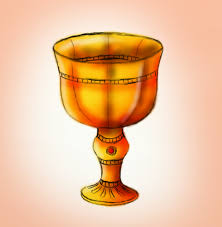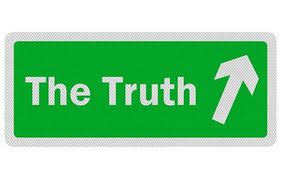John 7:37 – On the last day of the feast, the great day, Jesus stood up and cried out, "If anyone thirsts, let him come to me and drink."
 Here is what we have noted so far about the Feast of Tabernacles aka the Feast of Booths:
Here is what we have noted so far about the Feast of Tabernacles aka the Feast of Booths:- It was a seven-day feast immediately followed by a day of solemn assembly before God (Leviticus 23:34-41). The Jews referred to the eighth day as the 'great day'.
- The feast commemorated two things. One: God brought Israel through the wilderness into the Promised Land, providing for their needs all along the way (especially food and water). Two: It was a celebration of thanksgiving for the current harvest season.
- The Israelites erected temporary shelters made of frames plus tree branches and lived in them for the duration of the feast to symbolize their desert wandering (Leviticus 23:42-43).
- This was one of three instances where God commanded all Israelite males to appear before him at the temple (Deuteronomy 16:16). Therefore, this feast was exceptionally well attended; it was second only to Passover.
- There were specific sacrifices offered on each day of the festival (Numbers 29).
- There was a public reading of the entire law, spread out over the duration of the feast, as a reminder to the people (Deuteronomy 31:9-12).
Now, in order to fully appreciate the words of Jesus in this passage of scripture, we need to review some additional information:
During the first seven days of the feast, the Jews traditionally offered sacrifices for the heathen nations, as well as themselves. But on the eighth/great day, they offered sacrifices only for themselves.
The eighth/great day was a holy day and no servile work could be performed on that day (Leviticus 23:39). This was the day they finished the reading of the Law.
The Jews had a custom associated with this feast, although it was not mandated by God. The priests, along with a great entourage of Jews, would take a large golden vessel to the pool of Siloam (located by the fountain gate) and fill it with water. With great joy and the sounding of trumpets, this water would be carried back into the temple.
The priest bearing the golden vial would drink some of the water as the people loudly praised God. This was done in remembrance of God's provision of water from a rock during the desert wanderings. Without this provision, both Israel and their livestock would have died of thirst (Exodus 17:1-6).

At that point, one of two things would happen, depending on which historian you agree with. Either the remaining water was mixed with wine and poured upon the sacrifice that was on the brazen altar, or the water and a vessel of wine were simultaneously poured out on opposite sides of the altar as drink offerings.
As the offering was poured out, the Jews would sing scriptural songs and pray for the Lord to grant them plentiful rain for the next growing season. One of the songs they sung was found in Isaiah:
Isaiah 12:3 - Therefore with joy shall you draw water out of the wells of salvation.
Interestingly, the Jewish fathers asserted that this scripture (and others they sang) was a reference to the pouring out of Holy Ghost. There are many Old Testament scriptures that use water to refer to the effusion of the Spirit by the Messiah (Isaiah 44:3, Isaiah 55:1, Ezekiel 36:25-27, Joel 2:28 etc).
Using your imagination, picture the scene with me. It is the final, greatest day of the feast. Anticipation is in the air. The temple is overflowing with people, watching the procession of priests as it arrives from the pool of Siloam. The trumpets are sounding. People are joyously singing. Here comes the priest, solemnly carrying the beautiful golden flask with the water which represents God's provision in the natural realm (water in the desert) and his provision in the spiritual realm (the pouring out of Holy Spirit).
Meanwhile, the temple guards are anxiously searching the crowds, watching for Jesus and looking for a reason/opportunity to arrest him.
A profound silence overtakes the scene as the priest is about to pour out the drink offering to the Lord. At that precise moment, Jesus cries out. He is probably standing in an elevated place of the temple; everyone present can both see and hear him as he loudly proclaims, "If anyone thirsts, let him come to me and drink!"
The timing and the message are perfectly consistent with the way Jesus has communicated and ministered to people during his whole incarnation.
First, let's talk about the timing of Jesus. Nothing could drive home the true spiritual message more than Jesus loudly speaking into the silence at the exact moment the water was being poured out. I have goose bumps just thinking about it. I guarantee that none of the Jews present that day could have left the temple unaffected. (As we will see, the same was true for the temple guards, whom God restrained from arresting Jesus.)
Now let's talk about the message itself. As was his usual practice, Jesus takes a common occurrence (in this case, their own tradition/celebration) and shows them the spiritual principle behind it.
While their ritual was good in that it reminded them of God's promises of salvation, deliverance and the gift of his Spirit, it was just a ritual that would pass away with the law. By contrast, Jesus was now in their very midst, offering them the fulfillment of those same promises.
Jesus Christ, the Messiah, is the true fountain of all saving grace and spiritual gifts. He is not a dry well or a worn-out cistern, but a fresh, clear inexhaustible fountain capable of abundantly supplying all our wants and needs.
If we approach him in faith, eagerly thirsting for spiritual things like the Israelites thirsted for water in the desert, we can be assured we will be filled (Matthew 5:6, Isaiah 55:1).
John 7:38 – "Whoever believes in me, as the Scripture has said, 'Out of his heart will flow rivers of living water.'"
To believe in Christ means to acknowledge him as Messiah, and trust in him for salvation.
The phrase 'out of his heart will flow rivers of living water' is not an exact quote from any particular Old Testament passage. Rather, this was the substance or meaning that was taught throughout in the scriptures in places such as Isaiah 58:11, Isaiah 44:3-4, Ezekiel 36:23-27, Zechariah 13:1, Joel 2:28 and many others.
 According to Jesus, any person who receives salvation by faith in him will become a conduit of living water/spiritual blessings. Therefore, every Christian (working in conjunction with Holy Spirit) has the capacity to offer the salvation and spiritual blessings of Jesus to other people. We are his agents here on earth, freely giving as we have freely received (Matthew 10:8). In other words, we are the instruments by which Holy Spirit will be poured out upon the world.
According to Jesus, any person who receives salvation by faith in him will become a conduit of living water/spiritual blessings. Therefore, every Christian (working in conjunction with Holy Spirit) has the capacity to offer the salvation and spiritual blessings of Jesus to other people. We are his agents here on earth, freely giving as we have freely received (Matthew 10:8). In other words, we are the instruments by which Holy Spirit will be poured out upon the world.Notice that everything Jesus says in this passage indicates a flow of his blessings, not a stagnant pond. The blessings of Holy Spirit should be spilling out of our souls onto the hurting, thirsty souls around us.
It's no wonder we are told to lay hands on the sick, cast out demons, provide for the poor, travail in prayer, console the broken-hearted, fight for justice and fish for men. How are you allowing the benefits of Holy Spirit to flow through you?
Just as rivers widen and deepen over time, your spiritual conduit will grow as you allow Holy Spirit to flow through you. So start ministering today. As your faith grows, you can expect God to use you in more and greater ways.
John 7:39 – Now this he said about the Spirit, whom those who believed in him were to receive, for as yet the Spirit had not been given, because Jesus was not yet glorified.
Holy Spirit has always been present on the earth. We first encounter him in Genesis 1:1 as an active agent in the creation, hovering over the waters. The prophets, priests and kings of early Israel were all endued with a special anointing of Holy Spirit in order to accomplish their tasks in life.
In the New Testament, we find that Zacharias and Elizabeth (parents of John the Baptist) and others were also filled with Holy Spirit before the resurrection of Jesus. Of course, Jesus himself had the Spirit without measure (John 3:34). But these instances were limited in number.
However, God's great plan for the ages called for a full out-pouring of the Spirit upon all believers once Jesus completed the work of redemption and returned to sit at the right hand of the Father (John 16:7). It had to happen this way, because the indwelling presence and baptism of Holy Spirit are gifts that were paid for by the sacrifice of Jesus.
As we know, this out-pouring initially occurred in Jerusalem on the day of Pentecost:
Acts 2:1-4 - And when the day of Pentecost was fully come, they were all with one accord in one place. And suddenly there came a sound from heaven as of a rushing mighty wind, and it filled all the house where they were sitting. And there appeared unto them separated tongues like as of fire, and it sat upon each of them. And they were all filled with the Holy Spirit, and began to speak with other tongues, as the Spirit gave them utterance.
Of course, all Christians have Holy Spirit dwelling in their hearts; we received him during our salvation experience. He is the seal of our redemption (Ephesians 4:30); the guarantee of salvation/eternal life (Ephesians 1:13-14).
 But believers can also receive an additional measure of Holy Spirit which is evidenced by speaking in a heavenly language. This is commonly referred to as 'speaking in tongues'. This gift further empowers the believer, equipping them with boldness and other spiritual gifts, which allow them to serve Christ in a greater capacity (I Corinthians 12:7-11).
But believers can also receive an additional measure of Holy Spirit which is evidenced by speaking in a heavenly language. This is commonly referred to as 'speaking in tongues'. This gift further empowers the believer, equipping them with boldness and other spiritual gifts, which allow them to serve Christ in a greater capacity (I Corinthians 12:7-11).
As we know, the great fountain of God's spiritual blessings never ceases or runs dry. This includes baptism in the Spirit. This wonderful, powerful gift is still available to every believer, despite what some people may claim. If you are unsure about receiving this gift, I encourage you to search the scriptures and personally speak to someone who operates in this gift.
John 7:40 –When they heard these words, some of the people said, "This really is the Prophet."
In the next few verses, we find an account of the effects which the outcry or sermon of Jesus had upon the hearts of the common Jews. (John does not include the religious leaders who were already filled with hatred against Christ). Basically, the doctrine of Christ caused a schism in the Jewish church – there was a great diversity of opinion and heated contention over who was right and who was wrong.
Basically, there were three different opinions.
Some of the people felt that Jesus was 'the prophet'. This could refer to the prophet mentioned by Moses in Deuteronomy 18:15 or the promised forerunner of the Messiah which the Jews believed to be either Elijah or possibly Jeremiah (Matthew 16:13-14).
This group regarded Jesus with reverence and respect, because they sensed something divine in him, but they clearly did not understand what he taught. They fell short of coming to faith in him and recognizing him as the true Messiah.
John 7:41-42 – Others said, "This is the Christ." But some said, "Is the Christ to come from Galilee? Has not the Scripture said that the Christ comes from the offspring of David, and comes from Bethlehem, the village where David was?"
There were others who went a step further, acknowledging him as the Messiah. However, we find no evidence that they became true disciples and followers of Christ. Their confession was not a life changing result of faith; it was a mere intellectual opinion and nothing more.
Still others rejected him out of simple ignorance. They had been taught that the Messiah would come from Bethlehem (Micah 5:2) and that he would be a descendent of Jesse (Isaiah 11:1). This much was true.
But they don't fully investigate the facts. It is true that Jesus is often referred to as Jesus of Nazareth or Galilee (Matthew 21:11), but his actual birth place was indeed Bethlehem (Luke 2:4).
Any one of the people present in the temple could have investigated this apparent discrepancy by simply asking Jesus himself, or his mother, or one of his brothers. They could have consulted the public records and examined the genealogies of the family of Jesse/David and discovered the truth about his birth place and his lineage (Luke 3:23-38, Matthew 1:1-17), but they did not. They use their own ignorance as an excuse to reject Christ.
Ignorance of the scriptures can still be devastating to Christians today.
Hosea 4:6 - My people are destroyed for lack of knowledge.
Let's make sure that ignorance does not steer us in the wrong direction. We should diligently heed the advice of Paul, who admonishes Timothy to study the scriptures (II Timothy 2:15), rightly understanding the word of truth.
John 7:43 – So there was a division among the people over him.
We cannot fail to note that the preaching of the gospel often results in division. This seems to be true in every era, including ours. There will be some who gladly embrace it, others who scorn it, and many who will actively fight against it.
Additionally, we cannot fail to notice that it wasn't the heathen who were divided, it was the Jewish church. Sadly, this is still common today. While differences of opinion should always be heard, actual division should be closely guarded against because it renders us useless in the kingdom of heaven (Mark 3:25).
John 7:44-45 – Some of them wanted to arrest him, but no one laid hands on him. The officers then came to the chief priests and Pharisees, who said to them, "Why did you not bring him?"
The reaction of some people in the temple was hatred. They, like the religious leaders, had an immediate desire to arrest Jesus and take him before the Sanhedrin to be charged with blasphemy. In fact, the rulers had already called in temple guards to arrest Jesus.
It is interesting to note that although this scenario occurred on the final and greatest day of this important religious festival, the chief priests and Pharisees couldn't be bothered to attend the services. Instead of worshiping and celebrating God, they were sequestered away deciding church policy (looking out for their own interests)!
The rulers were frustrated with the temple guards. They were sent to do one simple task – arrest a poor, insignificant, unarmed, uneducated teacher. They even told the officers where the man would be. It was such a simple task, a child could do it!
Yet these armed, highly trained men who operated under the highest authority of the Jewish nation returned to their masters empty-handed. This could be nothing less than the providence of God; He made sure Jesus had the opportunity to preach his message.
John 7:46 – The officers answered, "No one ever spoke like this man!"
John's narrative indicates that the officers arrived just as Jesus was making his proclamation in the temple. They were immediately struck by his eloquence and doctrine. Power, truth and grace were evident in his words. By the time Jesus was finished, they were persuaded that he was from God. They were so convinced of his innocence, that they dared not touch him.
This further enraged the religious leaders. During the festival, they didn't dare to openly take Jesus by force (the common people would have rebelled), so they crafted what they felt was a perfect plan - the officers would arrest Jesus and bring him into their private chambers, where they could charge/sentence him to death before his teaching completely took over the nation.
But they too were thwarted by the hand of God. It was NOT the time for Jesus to lay down his life, so he passed easily through this trap without getting caught in it.
John 7:47 – The Pharisees answered them, "Have you also been deceived?"
The temple soldiers were not a bunch of village idiots. They were experienced, disciplined military men who were street smart and politically savvy. They had seen humanity at its worst and at its best. No doubt, they had seen many false Messiahs come and go (Acts 5:34-37). And they were utterly convinced that Jesus was the true Messiah.
 To any person honestly seeking the truth, these soldiers represented a powerful and credible witness for Jesus as the Son of God. If the religious leaders were honest seekers of the truth, they would have stopped to ask why the soldiers felt this way. They would have asked to see or hear any evidence that could shed light on the matter.
To any person honestly seeking the truth, these soldiers represented a powerful and credible witness for Jesus as the Son of God. If the religious leaders were honest seekers of the truth, they would have stopped to ask why the soldiers felt this way. They would have asked to see or hear any evidence that could shed light on the matter.
But they didn't. Instead, they were determined to prove that Jesus was an imposter and deceiver, regardless of the facts. We can plainly discern their envy, contempt and anger as they accuse the soldiers of being deceived by Christ.
John 7:48-49 – "Have any of the authorities or the Pharisees believed in him? But this crowd that does not know the law is accursed."
The authorities mentioned here are members of the Sanhedrin, the ruling body over the religious rites and doctrines of the Jewish nation. The Pharisees were a sect of Judaism who served on this council, along with Sadducees, priests, elders, etc.
The main point of the Pharisees is that the soldiers should reject Jesus as the Christ simply because everyone of rank or distinction in the community already did. The obvious implication is that only the common people, (ignorant rabble/men of earth, in their opinion) believe in Jesus as the Christ. Obviously, this raises a number of concerns.
- First, they were repressing the rights of every common person to examine the facts and make up their own minds regarding Jesus. Although they loved for people to blindly follow them, God never sanctioned that. Every Israelite should have been able to examine the evidence.
- Second, they were trying to refute the teaching of Jesus with contempt, not sound reasoning. If Jesus was a fraud, then it should be easy for these religiously educated men to prove it. But they never gave exact reasons or proofs for rejecting his doctrine. Instead, they tried to influence people by example – they hoped that if they scorned and rejected Jesus, others would too.
- Third, they over stepped their authority by claiming the right to pass judgment. It is true that the Jewish nation needed leaders who could exercise authority. Without it, the nation would disintegrate in a hurry. (The same is true for the modern church. There must be people in positions of authority, or everything will become chaos).
But even though the Pharisees had authority, they made a grave error. They were unwilling to submit this issue to God for a final judgment. In Deuteronomy the law states that if a matter of controversy arises which is too difficult for them to judge, they are to submit it to the priests, who will then inquire of the Lord for an answer. They were to diligently follow whatever direction God gave them. Anyone who didn't was to be put to death (Deuteronomy 17:8-12).
Had the Pharisees acted according to the law, they would have known Jesus was the Messiah.
John 7:50-51 – Nicodemus, who had gone to him before, and who was one of them, said to them, "Does our law judge a man without first giving him a hearing, and learning what he does?"
How interesting that we should once again meet up with Nicodemus! I am sure you remember him from the third chapter of John's gospel. He is a Pharisee and an honored member of the Sanhedrin.
Unlike his colleagues, he had the courage to set up a meeting with Jesus (albeit at night, in secret) to investigate his teaching and question his purposes. Nicodemus walked away from that encounter a changed man.
Now we find him in the great council where most of the leaders want to destroy Jesus out of jealousy and hatred.
Jesus was never arraigned on charges and never had the opportunity to present a defense. No witnesses were ever consulted in his case; yet the council had already judged and condemned him. They were ready to carry out his execution, and probably would have if the soldiers had arrested him. This was a gross violation of law and justice:
Deuteronomy 1:16-17 - And I charged your judges saying, Hear the causes between your brethren, and judge righteously between every man and his brother. You shall not respect persons in judgment; but you shall hear the small as well as the great; you shall not be afraid of the face of man; for the judgment is God's: and the cause that is too hard for you, bring it unto me, and I will hear it.
Exodus 23:2 - You shall not follow a multitude to do evil; neither shall you testify in a dispute to follow after a crowd to pervert judgment:
Deuteronomy 19:15 - One witness shall not rise up against a man at the mouth of two witnesses, or at the mouth of three witnesses, shall the matter be established.
Just as things are on the verge of being out of control, Nicodemus steps up and rebukes his colleagues. He reminds them that the law, which they claim to be experts in, requires an open impartial investigation before judgment is passed.
Although the words of Nicodemus were not exactly a robust testimony in support of Jesus, God used them to dispel this storm of persecution.
John 7:52 – They replied, "Are you from Galilee too? Search and see that no prophet arises from Galilee."
Obviously, this is a personal attack; an expression of contempt and mocking directed at Nicodemus for standing up for justice.
To be a Galilean was a term of the highest reproach back in the days of Jesus. The rulers were well aware Nicodemus was not from Galilee; they were implying that he had become a follower of Christ. And since Christ was from Galilee (or so they thought) he could NOT be the Messiah.
Let me offer you some encouragement:
Sometimes we find ourselves in the same situation as Nicodemus – we want to speak the truth and stand up for what is right, but we are timid or afraid.
If that is the case for you, I encourage you to seek the baptism of the Spirit. All throughout scripture we find that people who were timid or afraid operated in extreme boldness once they had received this gift.
Acts 4:31 - And when they had prayed, the place was shaken where they were assembled together; and they were all filled with the Holy Spirit, and they spoke the word of God with boldness.
Let me offer you some relief:
Have you ever wanted to say something publicly for the cause of Christ, but feel like you did a poor job of it? Have you ever thought of the perfect thing to say an hour after the opportunity passed?
I think we have all been in that situation one time or another. So let the example of Nicodemus offer you some relief – he gave one of the weakest testimonies for Christ that has ever been given! It was a very feeble attempt (to say the least) at standing up for righteousness, yet God used it for his purposes.
Let me offer you some strength:
There will always be people who fight against the cause of Christ. Some will do so out of ignorance, some out of pride and some out of hatred. We can expect them to oppose us and our message.
But don't be discouraged; there will also be people who will listen to the gospel message. For this reason, we need to be ready to share the hope Christ has given us:
1 Peter 3:15 - But sanctify the Lord God in your hearts: and be ready always to give an answer to every man that asks you a reason of the hope that is in you with meekness and fear:
Let me help you get started. If someone asked you about Jesus right now, what would you say? I suggest you begin with what God has done in your own life. For instance, has he delivered you from fear or addiction? Has he healed your body, mind or relationships? Has he blessed you financially? Worked some other miracle for you?
Using your own life as a starting point for the goodness of God will result in a genuine message; you can always quote scriptures later!
